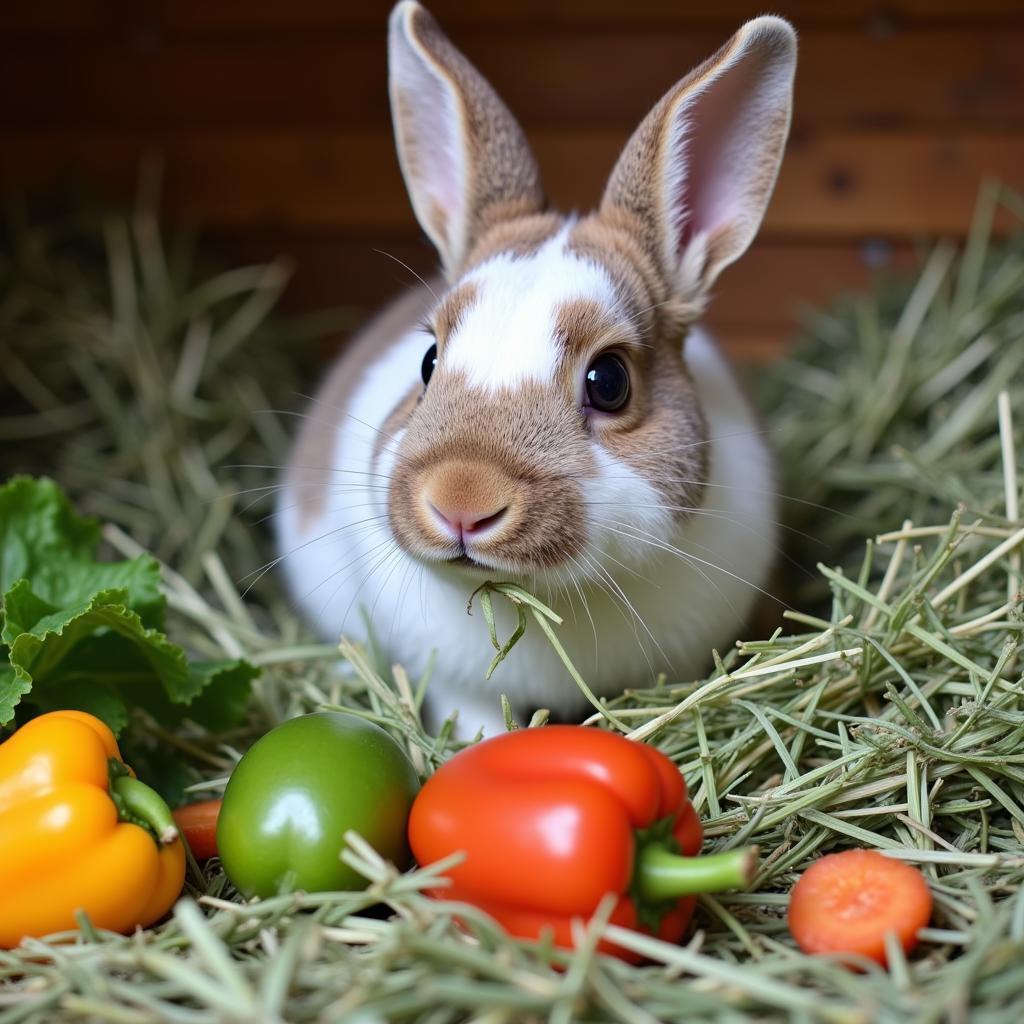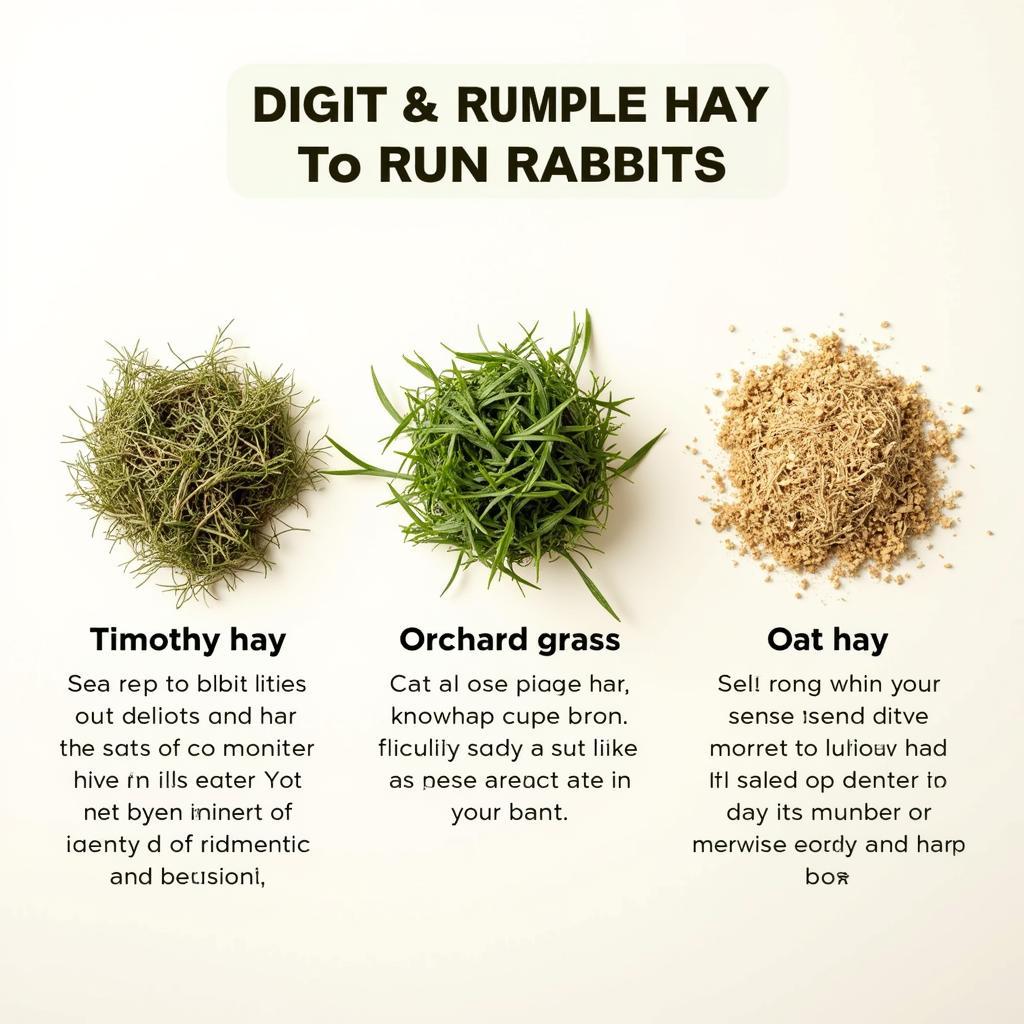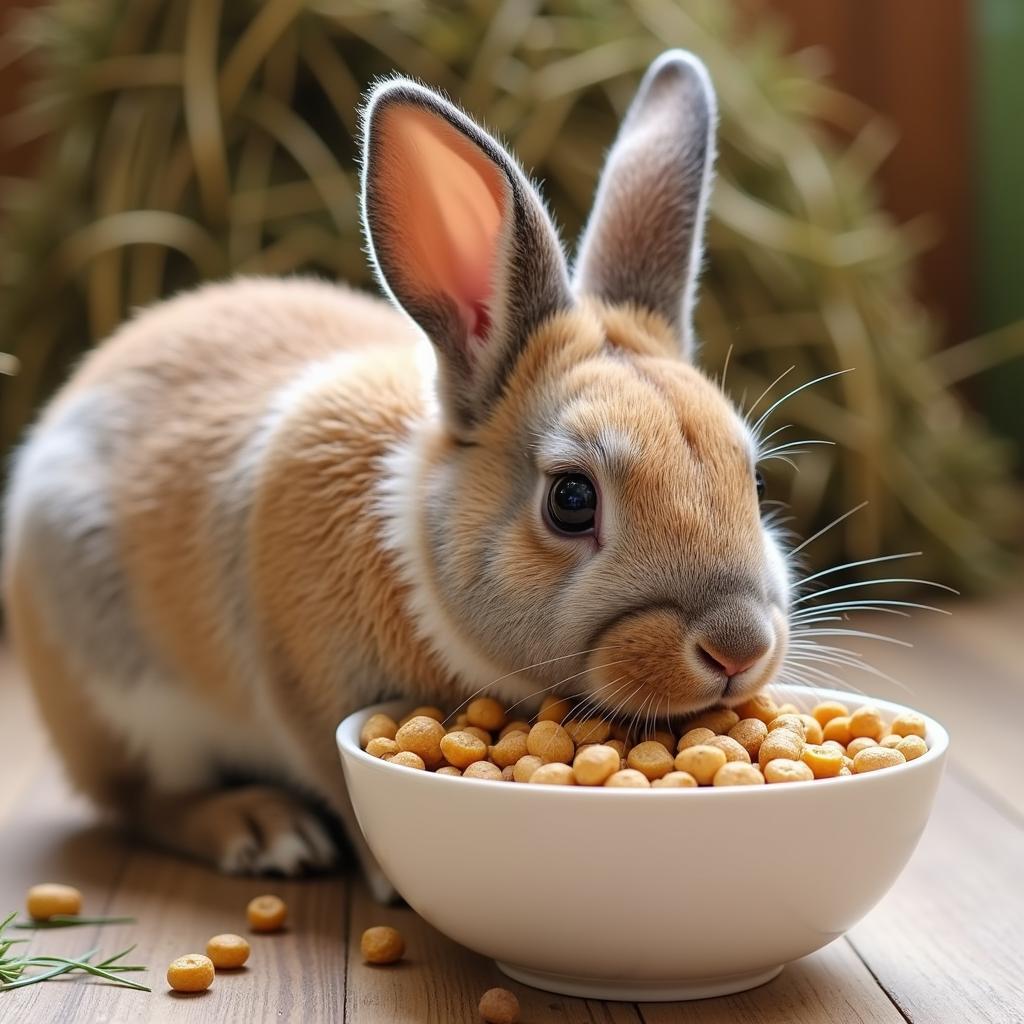Pure Rabbit Food isn’t just about pellets. Understanding what constitutes a balanced and healthy diet for your bunny is crucial for their overall well-being and longevity. This guide delves deep into the world of pure rabbit food, covering everything from essential nutrients to creating a varied and enriching diet that keeps your furry friend hopping with joy.
Understanding the Basics of Pure Rabbit Food
Hay is the cornerstone of a rabbit’s diet, providing essential fiber for digestive health and dental wear. Fresh vegetables play a vital role too, offering a range of vitamins and minerals. Pellets should be considered a supplement, not the main course, as they can be high in calories and low in fiber if not chosen carefully. What your rabbit eats directly impacts their health, so understanding “pure rabbit food” means knowing the balance between hay, vegetables, and pellets. Choosing the right pure rabbit food can be confusing. Do you go for commercial pellets, or is a natural diet better? What about treats? Let’s break down each element of a healthy rabbit diet.
 Hay and Fresh Vegetables for Rabbits
Hay and Fresh Vegetables for Rabbits
The Importance of Hay in a Rabbit’s Diet
Hay isn’t just filler; it’s the foundation of a healthy digestive system. It provides the necessary fiber to keep things moving, prevents digestive stasis (a serious condition in rabbits), and helps wear down their constantly growing teeth. Unlimited access to fresh hay is crucial for your rabbit’s well-being. Timothy hay is a great choice, but other varieties like orchard grass and oat hay can also be offered. Alfalfa hay should be given sparingly due to its higher calcium content.
Choosing the Right Hay
Look for fresh, green hay that smells sweet and is free of mold or dust. Storing hay in a cool, dry place will help maintain its quality. If you’re unsure which hay is best for your rabbit, consult your veterinarian or a rabbit-savvy expert. Did you know hay also provides mental stimulation for rabbits? The act of foraging and chewing keeps them entertained and prevents boredom.
 Variety of Hay for Rabbits
Variety of Hay for Rabbits
Fresh Vegetables: A Vital Part of Pure Rabbit Food
Vegetables add essential vitamins, minerals, and variety to a rabbit’s diet. Leafy greens like romaine lettuce, kale, and spinach are excellent choices. Other vegetables such as carrots, bell peppers, and cucumber can be offered in moderation as treats. Introducing new vegetables slowly is important to avoid digestive upset. My rabbit loves fresh parsley as a special treat!
Creating a Balanced Vegetable Mix
Variety is key! Offering a mix of different vegetables ensures your rabbit receives a wide range of nutrients. Avoid feeding your rabbit iceberg lettuce as it has little nutritional value and can cause digestive issues. A good rule of thumb is to offer at least three different types of vegetables daily. For a list of safe vegetables for rabbits, you might want to check out our article on homemade cat food for allergies which touches on safe pet food ingredients.
Pellets: A Supplement, Not a Staple
Pellets should be given in limited quantities to prevent obesity and ensure your rabbit eats enough hay and vegetables. Choose high-fiber, low-protein pellets specifically formulated for rabbits. Avoid muesli-style mixes as rabbits tend to selectively eat the tastier bits, leading to an unbalanced diet. Did you know rabbits can be picky eaters? Sometimes they may refuse certain vegetables. If that happens, try offering them different options until you find what they enjoy. Is Peter Rabbit baby food safe for your bunny? Find out in our informative article. You can also find great inspiration for your bunny’s treats with our Mad Hatters Tea Party Food Ideas.
 Rabbit Enjoying Pellets
Rabbit Enjoying Pellets
Conclusion
Providing your rabbit with pure rabbit food is a crucial aspect of responsible pet ownership. By understanding the importance of hay, fresh vegetables, and the role of pellets, you can create a balanced and nutritious diet that keeps your rabbit healthy and happy for years to come. Remember, a healthy rabbit is a happy rabbit!
FAQs
- What kind of hay is best for rabbits?
- Can rabbits eat fruit?
- How much should I feed my rabbit daily?
- What are the signs of an unhealthy rabbit diet?
- How can I encourage my rabbit to eat hay?
- Are treats necessary for rabbits?
- What should I do if my rabbit stops eating?
Looking for a nutritious food plot for your land? Check out our Lablab food plot guide! For pet owners dealing with allergies, we also have a resource on the best natural dog food for allergies.
Need more help with your rabbit’s diet? Contact us! Phone: 02437655121, Email: minacones@gmail.com or visit us at 3PGH+8R9, ĐT70A, thôn Trung, Bắc Từ Liêm, Hà Nội, Việt Nam. Our customer support team is available 24/7.